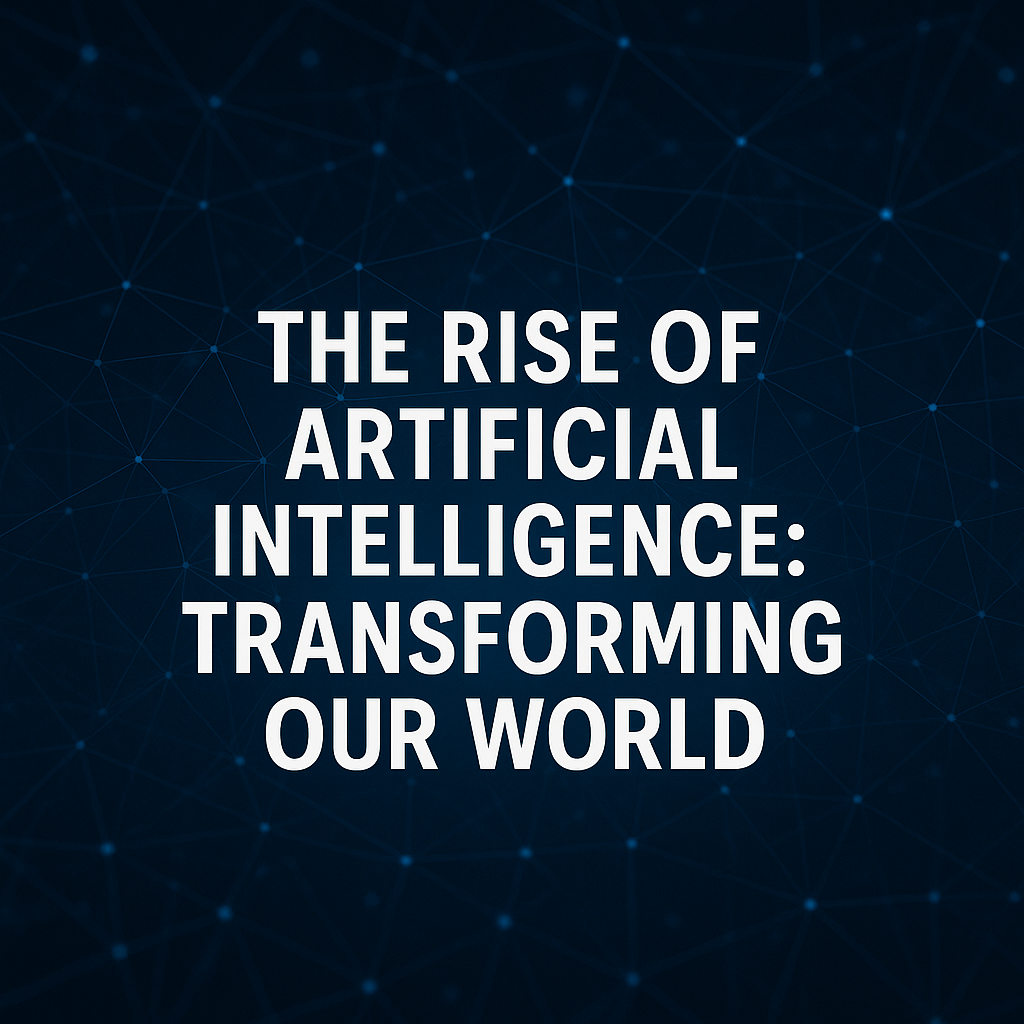
The Rise of Artificial Intelligence 2025
Posted on |
Artificial Intelligence (AI) is no longer the stuff of science fiction. It’s a rapidly growing technology that is reshaping industries, economies, and even the way we live our daily lives. From virtual assistants like Siri and Alexa to advanced AI models like ChatGPT, artificial intelligence is quietly becoming the engine behind much of today’s innovation.
What Is Artificial Intelligence?
At its core, Artificial Intelligence refers to machines or software that can perform tasks typically requiring human intelligence. This includes learning from data (machine learning), understanding human language (natural language processing), recognizing images, making decisions, and more.
There are two major types of AI:
- Narrow AI – Designed to perform a specific task (e.g., facial recognition or spam filtering).
- General AI – Hypothetical AI that can understand, learn, and apply knowledge across a wide range of tasks like a human being. We’re not there yet, but the dream continues.
👉 Learn more about types of AI
Artificial Intelligence in Everyday Life
You might be surprised to know just how integrated AI has become in our daily lives. Here are a few examples:
- Healthcare: AI helps doctors diagnose diseases faster and more accurately through image analysis, pattern recognition, and patient data interpretation.
- Finance: AI algorithms are used for fraud detection, credit scoring, and stock market predictions.
- Retail: Personalized recommendations on Amazon or Netflix? That’s AI.
- Transportation: Self-driving cars by Tesla or automated logistics by companies like FedEx rely heavily on AI.
Even your smartphone camera uses AI to enhance pictures based on lighting and context.
👉 How AI is used in different industries
Benefits of AI
The appeal of AI lies in its ability to process massive amounts of data and make decisions or predictions in real-time. Some of the biggest benefits include:
- Efficiency: Automating repetitive or dangerous tasks.
- Scalability: AI can manage millions of interactions (like customer support chatbots) without tiring.
- Accuracy: In fields like medicine or manufacturing, Artificial Intelligence reduces human error.
- Cost Savings: Once implemented, AI systems can significantly cut down long-term operational costs.
Challenges and Concerns
Despite its promise, AI brings several risks and ethical dilemmas:
- Job Displacement: Automation may replace jobs in manufacturing, transportation, and even white-collar sectors.
- Bias in Algorithms: If an AI is trained on biased data, it can reinforce discrimination.
- Privacy: AI systems often rely on large datasets, raising concerns about personal data usage and security.
- Autonomy & Control: Who is responsible when an AI system makes a wrong decision?
These concerns have led to calls for regulation and ethical AI development practices.
The Future of AI
Looking ahead, AI will only become more powerful and embedded in our society. Some emerging trends include:
- Generative AI: Tools like ChatGPT, DALL·E, and Sora can generate human-like text, images, and even videos.
- AI in Education: Adaptive learning systems can personalize education based on a student’s pace and style.
- AI and Creativity: Artists and musicians are using AI to collaborate on music, paintings, and even screenplays.
- Robotics: AI-powered robots are now being used in agriculture, elder care, and even military defense.
Governments and tech leaders are increasingly investing in AI research, emphasizing the need for transparency, fairness, and global cooperation.
How to Stay Informed
As AI rapidly evolves, it’s important to stay updated. Some trusted resources include:
Final Thoughts
Artificial Intelligence is more than just a technological trend; it’s a paradigm shift that’s redefining how we interact with machines and the world. While it brings remarkable benefits, it also calls for thoughtful regulation and ethical development. The future is not just about smarter machines—but about smarter decisions we make today.